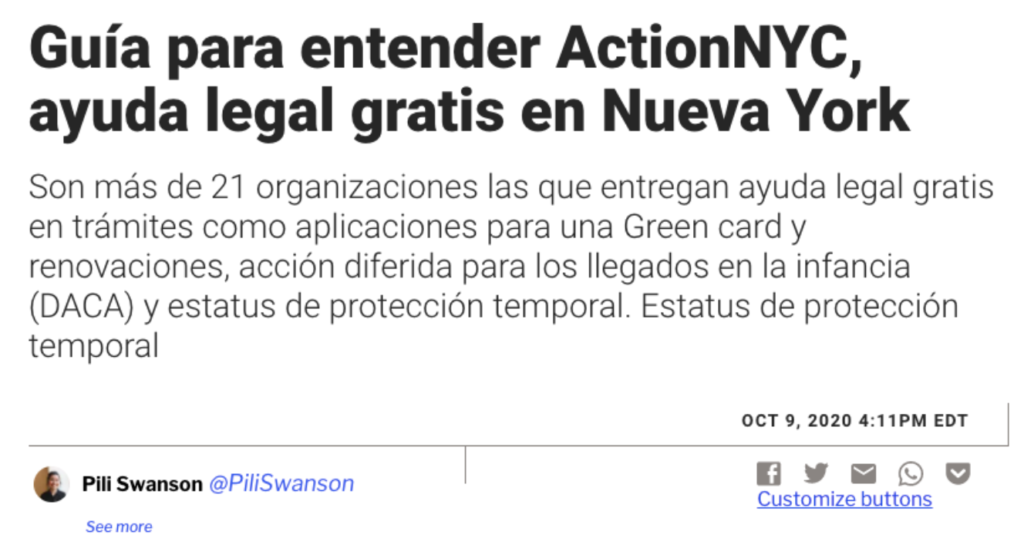
What’s next for Documented Semanal, a WhatsApp newsletter

When the pandemic began, we, like many other organizations, worked quickly to respond to all of the pressing needs of our readers. Tens of thousands of NeW Yorkers were suddenly left jobless and afraid of getting sick. We knew financial relief and organizations seeking to help were out there, but many residents did not know how to access it or connect with those groups. That was where we felt we could help: creating a bridge between New Yorkers and the people who were trying to help them.
Months later, the city began reopening again. Outdoor seating in restaurants became full and so did the parks.
But the pain in the community remained and the needs are just as urgent. We may be in less of a frantic situation, but there are still glaring problems that our community is facing. Tens of thousands of New Yorkers remain jobless and are steadily accruing unpaid rent bills. Food pantry lines run down the block and all signs point to New York returning to lockdown.
As the pandemic slowed, so did the pace of our growth. The needs of the community being less pressing combined with the stasis of political action on COVID-19 relief means that there is less help to discover. Many of the funds that sprung up in the early days of the pandemic have disappeared. So, that left us with the question of how to mature Documented Semanal.
As the platform continues to grow, we will continue to ask ourselves questions about how we can best serve our community. The beginning of COVID-19 brought clarity. Our community had clear needs and we knew how to help. Now, however, those needs are more complex and the questions are more varied.

We realized we had to pull back the focus and expand our coverage of other issues. We created a guide for education in New York and all the problems schools are facing right now. We created another guide to accessing legal help. We started a centralized directory of all the organizations that help immigrants in New York.
Looking forward, audience input and engagement will become even more important to our organization. We were basing our coverage on a mixture of what we expected readers would need to know (where and how to access funding, Q&As about COVID-19 and how it spread, etc.) and responding to questions posed to us.
Moving forward, I suspect we will rely even more on the input of our readers. Every week, our audience editor does a qualitative analysis of the discussions happening on WhatsApp and synthesizes those questions into article ideas that get at the heart of the problems they are facing.
Because we can no longer rely on the focus that the pandemic initially brought us as a newsroom, we have to dig deeper to understand our value add as an organization serving Spanish-speaking immigrants in New York City outside of the pandemic issues. This will require longer term thinking and digging deeper into what we’ve done so far and what we want to accomplish. This will also involve opening up the conversation with our readers further.

Comments